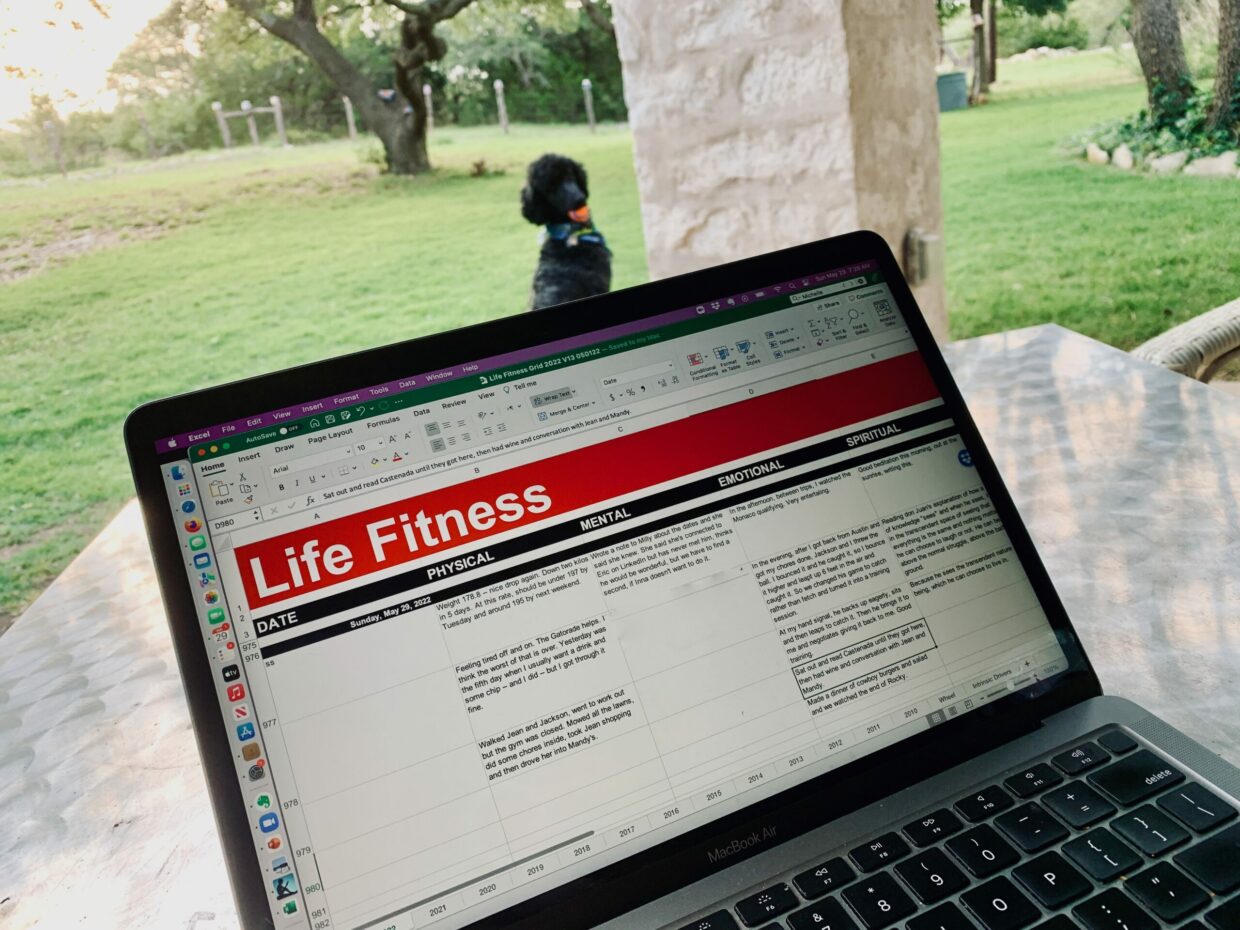A speech to the Professional Speechwriters Association at the State Library of New South Wales, Sydney.
February 13, 2019
A man falls into a hole.
That’s how Bob Lehrman, Al Gore’s speechwriter, describes Kurt Vonnegut’s approach to the problem of the novel: a man falls into a hole and the writer has to get him out. Why a man? Apparently, the supposition is that women are better at watching their step. But if there’s one area where we find true gender equality, it’s in our ability to make mistakes, so it’s not that.
Let’s say, instead, a leader falls into a hole and the speechwriter has to decide if we can get her out of there.
Or, let’s say a speechwriter falls into a hole. Who’s going to write her out of that predicament?
That’s the question we’re going to look at for the next 29 minutes. I’m going to ask you to look at where you’ve dug yourself into a hole. And how you’re going to get yourself out of it.
Is there a way to do that?
I’m going ask you to think of the poet Mary Oliver’s question that Mark Tredinnick shared with us yesterday: “What are you going to do with your wild and precious life?”
—
Let me tell you a story.
It’s a June morning in Western Kansas and I’m standing at a crossroads. Rolling fields of wheat as far as the eye can see. It’s dawn and it’s like that scene in North by Northwest, where Cary Grant is being chased by the airplane. Only I’m not being chased, I’m chasing something of my own.
I’m 21 years old and I’m hitchhiking from my university in Santa Cruz, California, to Boston where I’m going to work on my poetry. And I just want to get there and find out where my life is going and who I’m going to be.
I spent the night sleeping on a picnic bench in the back of a little truck stop. I cleaned up and now I’ve walked out to the crossroads, which is where a country road bisects Interstate 80, a super highway that goes coast-to-coast.
I’m standing there for half an hour and maybe a couple of cars have gone by and each one of them, as they saw this long haired poet standing there, accelerated by me as fast as they could. I’m just thinking that maybe what I ought to do is walk up to the highway, where maybe I can flag down a truck.
Then I look across the road and coming down off the freeway on the off-ramp is an old pickup truck. It gets to the stop sign at the bottom, pauses, and I see the driver looking across at me.
He pulls forward, pulls up next to me and motions for me to get in. I sling my backpack into the bed of the truck, I get in and we start driving. We have the conversation that you have when you get a ride with somebody: “Where you going?”
I said, “I’m heading east. There’s a girl in New York I want to see and then I’m going to go up to Boston and be a writer. Where are you going?”
He said, “I’m going to the county seat.”
He said, “My son graduated from UCLA last week. He called me last night and he said, ‘Dad I’m not coming home. Not going to work on the farm, Dad, and I’m sure as hell not going to take it over so you can retire.”
And he said, “So, I’m going to the county seat. Going to the courthouse and I’m going to declare bankruptcy. I’m going to get rid of the farm. I’m done.”
In that moment, I had this feeling that I was called to something, because I was the only person probably in four or five counties who could in any way help this man understand what it felt like to be 21 in 1970, graduating from college in Los Angeles, California, and what that might look like.
So I started asking him questions. I started sharing things that I saw. I tried to see if I could somehow represent his son in a way that he could understand, and that would make sense in his world.
I don’t remember what we talked about. I don’t remember anything I said.
Finally, we get to the county seat, and I can see the dome of the courthouse off in the distance, and when he pulls down the off ramp, he stops at the side of the road.
And he says, “I changed my mind. I’m not going to declare bankruptcy. I’m going to find a way to make this work. Thank you.”
I watch him make the U-turn under the freeway and head back to where he came from. I don’t know if he actually turned his life around, but as I stood there, I realized that I had helped someone change their life. I was so ill equipped to do that, but I stood into the moment and whatever I did, it helped.
I had coached someone.
It’s what David Murray and I call “a moment of Grace.” A moment where something you create – or something that’s created around you – where you step into and it works.
—
We are at a crossroads today. Leadership is it a crossroads today.
And leaders need people who can help them find their moments of grace so that they can turn the truck around get things going in the right direction. It’s critical that that happens in our world today. Critical in the States. It’s critical in Australia. It’s critical in every life.
And who better to take that on than the people who are already helping the leaders map out their journey?
Who better to take that on than you and me?
Yesterday, David talked about the message from “the unambitious speechwriter.” Remember? He just wanted to know, would it be okay if all he did was just sit there in his room and write speeches? Did he have to be more?
And here’s what I would say, the quote from Don Watson yesterday, “He who undervalues himself will be undervalued by others.”
“He who undervalues himself will be undervalued by others.”
—
The day you were born, the nice nurse picked you up and took you over and put you in a box.
I’m not talking about the little bassinet. I’m talking about the box marked “boy” or “girl.” The box marked “rich” or “poor,” “smart” or “slow,” “gifted” or “special,” “white” or “black” or “indigenous.”
Whatever boxes we’ve been put in all of our lives. Every day of our life, someone put us in a box.
We talked on Monday about the teacher who thought all of the children in her class were retarded because they were black. We talked about the teachers who were told that “those two new kids that came into your class had the highest IQ we’ve ever seen and keep an eye on them.” And those kids out-performed because of the box they were put in.
And then we get going into our lives, and we’re in the box of “university” or “not university.” We’re in the box of “I’m going to be a leader” or “not a leader.” We’re in the box of “I’m going to be a manager” or “I’m going to be in communications.”
We’re in all these different boxes and where we end up, at some point you realize “I’m the man in the hole. How did I get here? How am I going to get out of here?”
And here’s the thing: Who better to rewrite your story than you? You’re already a writer.
And here’s a secret: That box that you’re in? That box is just a story.
It’s all story and right now, whatever you’re telling yourself about your ability to change or not change, your ability to dig out of the hole, or climb out of that box, that’s a story, too.
So how do you do it?
On Monday, we talked about a coaching framework of asking questions. Because your job is not to have the answers. You don’t have the answers, your job is not to have the answers, your job is to ask the questions.
A speechwriter falls in a hole.
Where am I?
I’m stuck I’m in a hole.
Why am I here?
I’m here because I wasn’t valuing myself. I was undervaluing myself. I didn’t choose what to do with my wild or precious life. Or, well yes, I did choose. I chose to climb into this box.
Who am I being?
I’m being somebody who is stuck.
What do I want?
I want to get unstuck. I want to step out of this box. I want to make a new story.
What wants to happen?
You know what? I think the reason that I’m asking myself these questions is that I’m ready to get out of this box. Like Mark Tredinnick said, “If you want heaven, start in mud. Begin transfiguration where you’re stuck.”
What don’t I know?
I don’t know anything. Who knows what I don’t know? I don’t know who I’ll be when I get out of this box.
How does it feel?
You know when it feels right. And you know what? If it doesn’t feel right, then where are you?
Asking yourself the question, or asking your leader the question, you begin to dig your way out.
A leader falls into a hole
Ask, where are we?
Why are we here?
Who are we being? What do we want?
Those are the questions, simple as they are, that transform an organization. And let me tell you something: in my career, as soon as I started asking myself those questions, clients started responding. Because they’re hungry for somebody who knows how to ask the right questions.
—
Early in my career, I was really lucky. I got to do a whole series of talks for IBM, in which they would pair me with a creative mind — very famous ones – and I would write an hour-long, one-man or one-woman show, usually telling their story through their work. I worked with Dick Cavett, the Australian political cartoonist Pat Oliphant, Tommy Lee Jones, John Travolta, Patrick Stewart. They were wonderful to work with, but one of the times that was really great was when I got paired with Maya Angelou, the poet.
Maya was amazing. I really learned a lot from her, and I spent a tremendous amount of time with her. She liked drinking wine as much as I did, and when she met my wife Jean, she liked Jean even better than she liked me. We had a tremendous time with Maya, and she said one thing that really, really stuck with me.
She said, “Success is liking yourself, liking what you do and liking how you do it.”
So if you’re not successful or if you’re not feeling successful, just ask yourself a question.
Do I like myself?
No, I’m in a hole. I put myself in a box and I don’t like being here.
Do I like what I’m doing?
No, I don’t like what I’m doing. This is not where I should be.
Do I like how I do it?
How could I?!! I’m stuck in a box.
Our job is to help our clients feel that they like themselves. That they like what they’re doing. That they like how they’re doing it.
If you can do that, then you’re no longer just the speechwriter. Now you’re a trusted advisor. You’ve written yourself out of the box of being the person over in the corner who’s coming up late at night with a speech. Now you’re the kind of person who asks the questions that help the leader be the kind of person they can be.
You got to get this: the communication of leadership is the most important job you can do in any organization.
The communication of leadership is the most important job you can do. The leader has to do it. Anyone in a position of leadership has to do it. And anyone who helps them communicate it is doing the most important job. Nothing is more important.
Leadership is social. So you don’t need to have a management degree or an MBA to be a leader and you don’t need to have a management degree or an MBA to coach a leader. You just have to know how to ask the right questions and you have to understand that it’s social.
When I was first speech coaching, moving from speech writing into speech coaching and from speech coaching into higher forms of executive coaching, I used to joke that I was the world’s only ontological speech coach. Ontology is the science of being, how we look at who we’re being.
So, when I had somebody who was being a little goofy on stage, I didn’t look at what they were doing as much as who they were being that was making them do it. If their voice was sticking in their throat or if their body language was funny, or if they were talking too fast or too slow, I wanted to know what was going on inside them.
Because if I fixed that, then we could really get somewhere.
All of us have clients. And all of our clients are in boxes. How do we know that? Because all of us are in a box. And all of us want to get out of that box and at least move to a more spacious box, a bigger box of box with a better view, where we can build a better life for everyone around us.
I had a client who was the new CEO of an automotive parts company in the US.
This is the first time he’s spoken to the company and his speech has been written by his staff. All I really have to do help him do a run-through of his speech in an offline room. We’ve got the prompter, we’ve got the slides and he’s going through the speech. I was really impressed with him. He was really smart.
Except there were these two paragraphs, and every time we got to those two paragraphs, he literally could not speak. He stumbled on every word. He couldn’t get it right. We don’t have his speechwriter in the room, and I want to be careful not to start rewriting it myself. But maybe if somebody’s written something for you that was not the way you speak … maybe we could just reword it a little?
We tried that. We go through it again, he hits the same spot and he stumbles in the same place. Now I know something’s wrong.
I said to him, “Every time you hit those two paragraphs, you choke. What is it about that part?”
And he said, “You just helped me understand something. That policy we’re talking about was in progress before I took the job. Other people have been working it on that and handed it to me to read. But I fundamentally think that is the wrong way to deal with this issue. It’s not right for our dealers, it’s not right for our customer’s, and it’s not right for us. And suddenly, I realize I can’t say that.”
If I had not just called him to it, he would have gone up there and stumbled through it. Then they would have had whatever setback that would have caused in their conversation with their dealers. But because he was able to step through it and look at who he was being, he was able to make a leadership decision.
—
Through my work as a speech coach, I started getting invited to do executive coaching. I had a client, who I’ve done a lot of work for, who said, “I know this isn’t exactly your thing, but I think you could help. We’ve got a got a young man who was promoted to a VP job because he’s a real go-getter, but he’s also a real bull in a china shop. And now that he’s in there, he’s stepping on everybody’s toes and he’s really hurting things. Would you come in and help?”
And I said, “Let me see what I can do.”
And he said. “We’re probably going to have to fire him, but we feel like we promoted him and so we owe it to him to try.”
Okay, so I fly out to Berkeley, California, across the bay from San Francisco. They put us in this beautiful room. You can see the bridges and it’s very inspiring.
So, I walk in and ask him, “Why am I here?”
And he said, “Because they say I’m an asshole.”
“Well, are you?”
He shrugs.
“So, let me ask you a question. There are a lot of really successful assholes out there running really big businesses and doing really great. Why don’t you just tell them to go fuck themselves and be an asshole?”
And he says, “No, I want to try.”
So, we work for a couple of days. It didn’t do any good and, in the end, he took my advice. He remained an asshole. But at least he was true to himself, and we got him out of there, and they were able to move the company on.
—
How many of you know the phrase “Signal and Noise?”
You know what that means? In astrophysics, if you want to look at a star that’s a hundred light-years away and pick up the sound and light waves coming from that star, you’ve got to cut out all the other noise coming from all the other stars around that star, so you can really hone in on that particular signal it’s sending. It’s like tuning a radio in the old days: we have to really get that channel tuned in right so that all the other extraneous noise is tuned out.
But that doesn’t work with people.
With people, the noise is as important as the signal, if not more important, because with people the noise is the subconscious mind trying to communicate.
It’s what Lucinda Holdforth was saying yesterday about Aristotle’s rules of rhetoric. With people, the signal is logos – it’s the logical message. But the noise is the ethos and pathos, and without that, you don’t have the whole person. So, as you’re asking your leaders the questions, pay attention to the noise, because that’s where the real value is.
The CEO who couldn’t speak those two paragraphs: listening to the noise is what helped us save the day.
—
I got called in for speech coaching for the CEO of a major corporation.
So I say “Let’s take the slides from your last quarterly earnings call and put it up on the screen.” Use that as a practice speech. And he’s alright as a speaker, but one thing I noticed was that there was one place on the sixth slide where I was getting “noise,” where he got a little weird.
So, when we finished, I said “Let’s go back to that.”
I said “When you got there, it didn’t feel right. Is there something wrong with that second bullet point?”
And he said “No, why?”
And I said, “Because when you started talking about that part of the business, your voice got thicker. It got rough. And then you started swaying your hips.”
And he says, “All right, if you’re going to push me, I don’t think we’re telling the truth on that. I think we’re in good shape on it, but I think we’re trying to cushion it too much. We should tell them the truth.“
We finished up and at the end of the meeting, he says “Listen, I fired my executive coach last year. Would you like to be my executive coach?”
And it just came from watching for the noise and asking the right questions.
—
I was an accidental speechwriter. I became an accidental couch. I did it all by asking questions. I rewrote the story of my life and my career. If you’re a speechwriter in a box, you can do it, too.
For those of you were here on Monday, I’m going to execute the “Lehrman Landing.” And I hope I stick it.
We are at a crossroads of leadership in this country. The world is at a crossroads. Leadership in all of our organizations is at a crossroads.
We’re at a time where we’re seeing a global kakistocracy take over our institutions. Kakistocracy is a Greek word for “government by the worst people in society.”
What are you going to do about it?
What are we going to do about it.
Abraham Maslow had a quote that I love. He said, “The history of the world is the story of men and women selling themselves short.”
The history of the world. You and me. Selling ourselves short.
Let’s not do that. You are standing at a crossroads. Make this your moment of grace.
Yesterday, Mark had a beautiful quote from Norman McClain.
“Everything good comes from grace,
grace comes from art,
and art is never easy.”
Changing the world is art. Climbing out of the box is grace. Changing the boxes of all the people around you is not easy, but that’s what you’re going to do with your wild and precious life.








